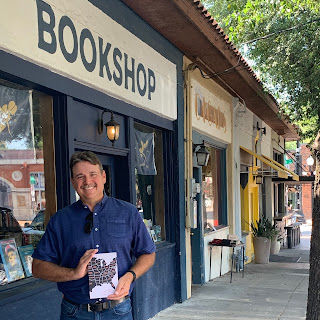I met my first girlfriend in the third grade. She thought I was a rebel of sorts — a transfer from the public school system, repeating third grade. I wasn’t a rebel. I still couldn’t read.
We were “boyfriend and girlfriend” for three short months. I moved away after the school year ended.
We might have been “together” longer, but she didn’t know I liked her. I always liked her.
I finally worked up the courage to let her know how I felt on Valentine’s Day. I wrote it in the Valentine’s Day card I gave her — the biggest one in the box. They always came like that in a class pack. There were 23 or 29 regular Valentine’s Day cards in the box and one (sometimes two) super special ones. I gave her THAT one.
The only problem was my writing. Because I didn’t read well, I didn’t write well either. So when she opened my card, she wrinkled her nose and joked about how she couldn’t read it. I made a joke about it, too. I didn’t want her to know it came from me. So she didn’t think I liked her because I didn’t give her a card. Or, so she thought.
My second chance came a month later. We had an auction at the school, and she had donated a tapestry with a Native American on it. She thought it was cool because she was Native American, too. But nobody bid on it. So I did. I bid everything I had, which I didn’t have to do. She got the message. I liked her as much as anybody likes somebody in third grade.
Love makes you do crazy things, even when you don’t understand it. It’s one part anticipation and two parts relief. There really is someone out there for you, at least until you move away.
Young love in the novel Third Wheel.
While my novel Third Wheel is often described as a coming-of-age thriller that follows Brady Wilks along the fringe of the 1980s suburban drug scene in Las Vegas, it’s not without heart. In between the tension, Brady pursues two love interests in the book.
The first is with an 18-year-old named Cheryl. The relationship is immediately problematic because Brady lies about his age, fearing she will lose interest, knowing this is the summer before his sophomore year. Brady won’t celebrate his 15th birthday until late fall.
He meets Cheryl early in the book. She is one of several satellites orbiting the parties hosted by his older friend group. Cheryl has every reason to believe he was in her ballpark — a soon-to-be junior or senior — until his adolescent awkwardness gives him away.
For Brady, he is drawn to the impossibility of the relationship and the promise of emotional stability, filling a void that can’t be found in his unstable life. Cheryl puts his troubles on pause, even if he never understands her interest in him.
Because the story is told entirely from Brady’s self-centered point of view, most readers don’t either. Everybody’s best guess is that dating someone younger might even the playing field for a recent high school grad in the 1980s. Sure, while the 70s may have moved the needle on gender equality, the 80s dating scene didn’t know it.
Brady’s perceived rivals drive this point home. They always appear more confident in winning over her attention and affection. With Brady, it’s an internal tug of war. She pulls him toward her and pushes him away at the same time.
She wants it to work but knows it will never work. Maybe Brady feels that way, which is why he leaves himself open for two alcohol- and drug-infused flirtations during the book. One doesn’t amount to anything, but the second one leads to the start of something, even if we never see what exactly that might be.
Brady meets this second girl, Sandy, in a Mob-owned strip club. Despite working as a server and part-time stripper, Sandy is an underage runaway from California, much closer in age to Brady than the lie she tells him.
“Twenty-one, hun.” “Beat you by a year,” he lies in return.
The contrast in these two relationships has more to do with the girls than the boy. When Sandy looks at Brady, she sees a reflection of herself. Despite a facade of self-confidence that initially attracts Brady’s attention, Sandy is just as out of her league as he is out of his.
Broken people tend to attract broken people, and Sandy is empathetic enough to see he’s broken. Together, being broken feels safe and normal. It leads to something much more casual, comfortable, and accidental.
Each relationship is different but somehow gives Brady what he needs most when he needs it. That’s how stories go sometimes.
Love is desperation, anticipation, and infatuation on the front end. It’s affection, acceptance, and attachment on the back end if it lasts long enough. But it rarely lasts long enough because the strongest thing in the world is also the most fragile; hard to find and easy to lose. Cherish every minute before you move away. Happy Valentine’s Day.
























